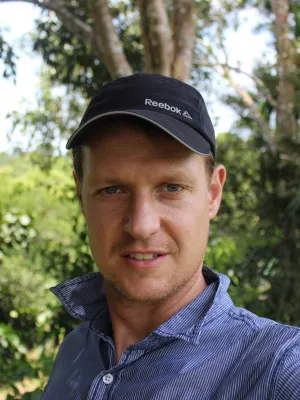
Torsten Krause
Senior Lecturer, Deputy Director

Connecting socio-ecological values and education on sustainable development: : a case study with Swedish primary school students
Author
Summary, in English
Ensuring engagement with the Sustainable Development Goals (SDGs) by younger generations is critical to the kind of transformational change necessary to achieve the goals, both now and after 2030. In encouraging stronger engagement, an understanding of the socio-ecological values held by children towards ecosystems is critical information in constructing effective, science-based policy for education on sustainable development. Innovative educational and research methods are therefore required in order to connect and align policy with these values. In filling this gap, this study focussed on the perception of primary school students in the Gothenburg area (ages 10-12, n=403) of fundamental ecosystem services provided by forests. Emphasis was placed on exploring how the methods employed and results gathered could be used to better inform educational policy. Data was gathered within a multi-stakeholder partnership involving schools, local government, and forestry industry actors with the aim to educate primary school aged children on the importance of forests. The results showed that the students displayed complex notions of value towards forest ecosystems, further revealing the differing state of knowledge of the importance of sustainable development between social demographic groups. In the Swedish context, these results direct where further emphasis should be placed in educational curriculum to further underscore positive society-nature interactions. Specifically, the potential importance of nature-based integration strategies through primary education for young people newly arriving in Sweden as immigrants and refugees was highlighted, offering insight into how SDGs 13 and 15 in particular could be better communicated to young people in this demographic.
Department/s
- LUCSUS (Lund University Centre for Sustainability Studies)
- BECC: Biodiversity and Ecosystem services in a Changing Climate
Publishing year
2020-08-25
Language
English
Document type
Conference paper: abstract
Topic
- Economic Geography
Conference name
Conference for research and Innovation for a Sustainable Baltic Sea Region
Conference date
2020-08-25 - 2020-08-26
Conference place
Visby, Sweden
Status
Published